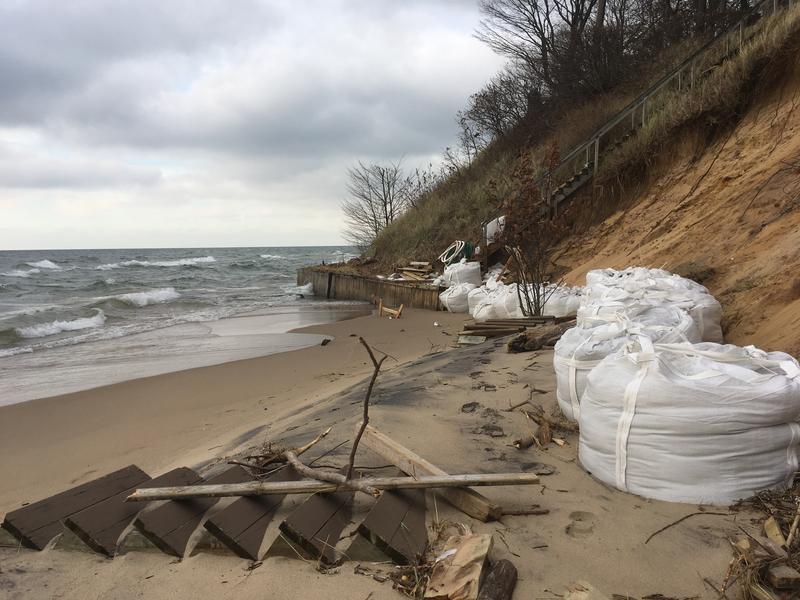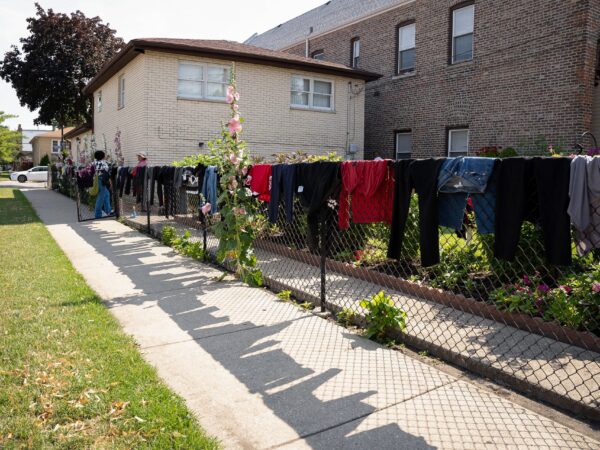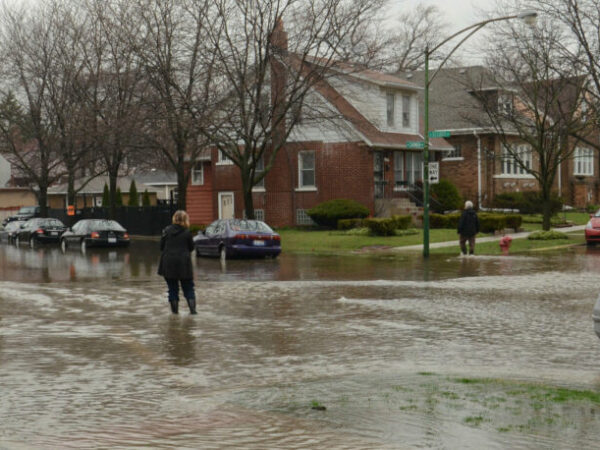
By Will Callan, Michigan Radio
The Great Lakes News Collaborative includes Bridge Michigan; Circle of Blue; Great Lakes Now at Detroit Public Television; and Michigan Radio, Michigan’s NPR News Leader; who work together to bring audiences news and information about the impact of climate change, pollution, and aging infrastructure on the Great Lakes and drinking water. This independent journalism is supported by the Charles Stewart Mott Foundation. Find all the work HERE.
Applications for shoreline protection permits tripled this year compared to last, according to Michigan’s Department of Environment, Great Lakes, and Energy.
The department granted 2,284 permits in the year ending September 30, compared to 730 permits the previous year. Most of those permits went to residential property owners wanting to protect their homes from rising water levels.
Often those permits allow the construction of rock walls as a barricade against encroaching waves.
Jerrod Sanders, the assistant director of EGLE’s water resources division, says some weather emergencies in 2019, concentrated along the southern Lower Peninsula’s west coast, required immediate construction to save roads and buildings from flooding and collapse.
“In some circumstances, we even used what we call discretion and said, nope, get your trucks out there right now, and get us an application next week,” he said.
But in most situations, Sanders says it’s better for the health of the lakeshore to move the endangered structure than build a wall.
“For a lot of people, and for the Great Lakes, whenever it was possible to do so … the best thing they can do is move the structures back,” he said.
He says rock walls aren’t a fail-safe and typically just divert the eroding forces to another part of the coast.
Water levels in the Great Lakes have reached record levels in recent years, with the Army Corps of Engineers recording the largest 24-month rise since it started collecting that data more than 120 years ago.
Last week, the Michigan House committee on Natural Resources and Outdoor Recreation advanced a bill that would simplify the permitting process for property owners threatened by high water.
Already passed by the Senate, SB 714 will now go to the House’s Ways and Means committee.
Catch up on more stories about shoreline communities and high water:
As Great Lakes pummel Michigan, beach towns rush to set development rules
Shrinking Shorelines: Climate change-related erosion threatens Great Lakes coasts
Review Underway: Will IJC’s efforts be enough for flooded shoreline municipalities?
API key not valid. Please pass a valid API key.Featured image: (Photo Credit: Dustin Dwyer / Michigan Radio)




